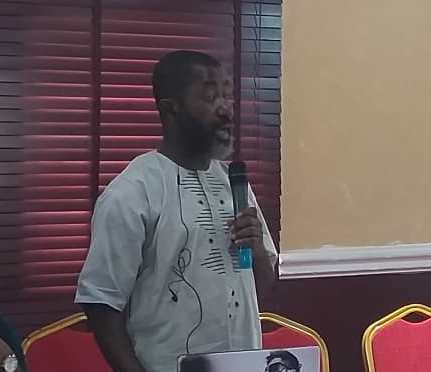Dr. Adebukola Adebayo, disability and inclusion consultant has disclosed that Nigeria can generate over 20% of its tax revenue from the disability community.
Adebayo disclosed this during a technical session on engagement with the 2020 Budget proposals facilitated by Open Alliance in partnership with Partnership to Engage, Reform and Learn, DFID-PERL.
Dr. Adebayo explained that the tax revenue can be generated from economically active Persons with disabilities, PWDs either through direct employment or through businesses owned by PWDs.
He stressed that, “the disability community is concerned about the huge deficit and shrinking revenues in the budget, as such we are proposing the widening of the tax-net of the nation to include PWDs who are thriving with their businesses. FIRS must develop disability-inclusive tax frameworks that make payment of taxes accessible to PWDs.”
Reiterating how revenues could be generated from the expenses of PWDs, Adebayo said, “PWDs spend huge amount of money on imported disability assistive and mobility aids and technologies. The country can make huge gains in Forex savings if it encourages production of assistive and mobility aids and technologies in Nigeria. CBN, DBN and BOI must coordinate financing for this subsector.”
He said, “the socio-economic potentials of the disability community must be gainfully and effectively explored and exploited. The community holds an annual potential spending capacity of close to a trillion naira which is just close to about a quarter of the total tax revenue in 2019.”
Speaking on the implementation of the National Disability Act, the disability inclusion expert said the 2020 budget should sufficiently fund the Implementation of the National Disability Act “especially the establishment of the National disability commission, and the funding of national disability rights awareness raising and reorientation, as well as intensive capacity-building across sectors on strategies for the mainstreaming of disability inclusion.
“Finally, the Governments at all levels and across the three arms should adopt a twin-track approach to mainstreaming disability inclusion in the budget process. First, stand-alone disability issues should be address; and second, disability inclusion should be mainstreamed in cross-sectoral budgets.”
During his presentation, Ajala Adetunji, Program Officer, Kimpact Development Initiative said the Budget of Sustaining Growth and Job Creation should have a pro poor approach especially as it regards to the social investment program of the federal government.
He mentioned the need for a citizens engagement approach in the formulation of budget beyond the public hearing adding that the Government should make the Ministry of Youths functional as it contribute larger percentage of the economy and such must be duly looked into.

